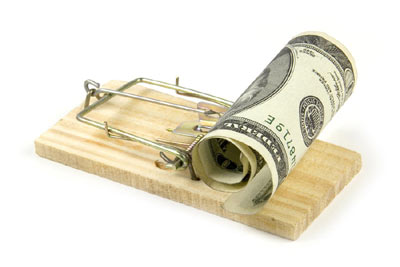
Usually that means government adopting policies that accept risk on behalf of individuals. The Great Depression was followed by the New Deal; the Great Recession yielded the Affordable Care Act. It's no surprise that the pandemic brought Build Back Better, which aimed to expand the welfare state even further.
The future of the bill is uncertain, but no matter what replaces it, the move to siphon more risk from Americans' lives at this point is a mistake. Some risk reduction has been valuable in the past, but today we are at a critical moment where more will cause harm. Rather than take risk out of the economy we need to add more in, especially for low-income people and the middle class.
That may sound crazy after two years of so much uncertainty, but lack of risk-taking is what's wrong with the economy right now. The central insight from finance is that without risk there is no reward, and this is true outside financial markets, too. There has been a notable decline in risk-taking over the years: less entrepreneurship, fewer job switches, less moving and fewer people working.
Economists estimate these trends are a big reason why wages aren't growing as fast as they used to. It's notable that wage risk or volatility (how much wages go up or down year to year) has fallen for everyone but the top 5% - the same group whose income also grew much, much faster. Less risk-taking means more stagnation, and less innovation and productivity improvement.
Coming out of the pandemic we have a unique opportunity to reverse this trend. Americans are finally taking more risks - quitting their jobs in record numbers and starting new businesses. Most of the new businesses are small or sole proprietorships. Some will fail, as most new businesses do, or become supplemental to a regular job.
Regardless, the government should embrace this burst of risk-taking - and not by offering politically appropriate subsidies or arcane employment regulations designed to level the playing field for small businesses. The best way government can help is simply by getting out of the way.
There are many reasons why entrepreneurship has declined over the years. It's been harder in this economy to start a small business. A mom-and-pop store has a hard time competing with Amazon.com or Target, which have more scale and can leverage technology to be more efficient. It's also become more expensive in terms of regulations.
Each year brings more rules and oversight for businesses. In some states the cumulative effect can be prohibitively expensive. Consider the aspiring entrepreneur in San Francisco who tried to open an ice cream shop and spent $200,000 on permits and related fees before giving up without ever opening his doors.
The pandemic has made the situation worse, bringing more regulations and higher labor costs.
There is a ray of hope, though. Technology can also help startups by smoothing out many of the obstacles that come with working for yourself. It's easier to find clients on apps and to reach customers far away. After years of working from home, some people got a taste of flexibility and of setting their own schedules and may not want to go back to a rigid office structure. This probably helps explain the notable rise in business applications in the last two years.
These new entrepreneurs face many hurdles, some of which are the result of an economy in transition that is more globally competitive and favors bigness. But some hurdles are artificial and of our own creation. Unfortunately, we can expect more of those hurdles.
Rather than encouraging people to embrace risk, policy has been creeping up to make it ever more difficult and expensive. The current administration wants to make it harder to hire gig workers, is favoring salaried unionized operations, and making it more expensive to hire people.
But what if it pursued policies that made it easier for people to embrace the benefits of risk-taking, while providing down-side protection for the most vulnerable. For instance, it could reduce regulations that make starting a business harder by encouraging states to standardize licensing requirements. It can encourage gig platforms to offer benefits (including health care and sick leave) without making them recognize contractors as employees.
Humans are built to take risk. The more we remove risk from our lives the more people will stagnate. We should make this crisis different, and instead of reducing risk, the government can get out of the way, bring back dynamism to the economy, and make it more productive and inclusive.
(COMMENT, BELOW)
Allison Schrager is a senior fellow at the Manhattan Institute and a contributing editor of City Journal.
Previously:
• Gen Z is too compliant to achieve greatness
• A bigger child tax credit isn't the poverty solution we need
• Finding your power in a higher-priced world
• The Biden administration's plans to double the tax rate on capital gains will prove costly to all Americans, not just the wealthy
• WARNING: Feel Good Now --- Pay Later: Stimulus is crammed with goodies but makes no economic sense
• The 'Stakeholder' Fallacy: Joe Biden's vision of capitalism is a recipe for failure


 Contact The Editor
Contact The Editor
 Articles By This Author
Articles By This Author